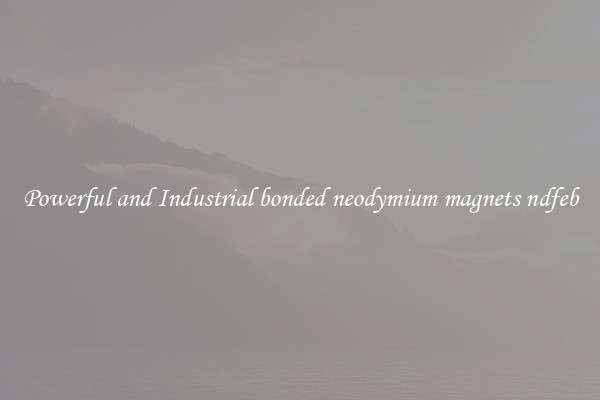Powerful and Industrial control magnetic materials
Powerful and Industrial Control Magnetic Materials: An Overview

Magnetic materials have revolutionized various industrial applications, from power generation and motion control to data storage and medical equipment. The discovery and development of powerful and industrial control magnetic materials have played a significant role in advancing technology and improving the efficiency of these applications.
Ferrites: One of the most widely used magnetic materials in industrial control applications is ferrites. These magnets are made from iron oxide mixed with ceramic materials, resulting in a hard and brittle material. Ferrite magnets possess excellent resistance to corrosion, high temperatures, and demagnetization. They are commonly used in motors, sensors, and transformers.
Alnico: Alnico magnets are composed of aluminum, nickel, and cobalt. These magnets are strong and retain their magnetic properties even at high temperatures, making them suitable for various control systems. Alnico magnets have excellent magnetic strength, high coercivity, and high magnetic permeability. They are commonly used in loudspeakers, guitar pickups, and magnetic sensors where high-temperature stability is required.
Neodymium Iron Boron (NdFeB): NdFeB magnets are known for their exceptional magnetic properties, such as high magnetic strength and energy density. These magnets are composed of neodymium, iron, and boron, making them the strongest known permanent magnets. NdFeB magnets have revolutionized industrial control applications, especially in high-speed motors, magnetic resonance imaging (MRI) machines, and computer hard drives.
Samarium Cobalt (SmCo): SmCo magnets are another powerful type of magnetic material known for their high-temperature stability and resistance to corrosion. These magnets are composed of samarium and cobalt, along with other rare earth elements. SmCo magnets possess strong magnetic properties and have a relatively high Curie temperature, making them suitable for aerospace applications, magnetic bearings, and sensors.
These powerful and industrial control magnetic materials have propelled advancements in various industries and improved the efficiency of modern-day technologies. They enable precise control and operation of machinery, resulting in increased productivity, reduced energy consumption, and improved safety.
However, the use of these magnetic materials also poses challenges. Their production involves the extraction of rare earth elements, which can be environmentally damaging. Additionally, their brittleness and high magnetic strength require careful handling during the manufacturing process.
In conclusion, powerful and industrial control magnetic materials have revolutionized various industrial applications, providing higher performance, efficiency, and reliability. Ferrites, alnico, NdFeB, and SmCo magnets have been essential in advancing technology, creating innovative products, and improving the overall industrial control systems. As technology advances further, it is expected that magnetic materials will continue to play a vital role in shaping the future of various industries.

View details

View details

View details

View details








